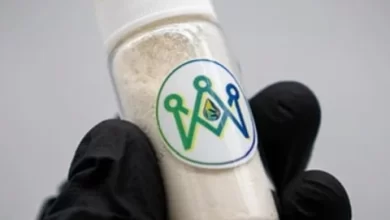
Here are some of the major hospitals in the city:
- Pakistan Institute of Medical Sciences (PIMS)
- Shifa International Hospital
- Federal Government Services Hospital (Polyclinic)
- Islamabad Diagnostic Centre
- Quaid-e-Azam International Hospital
- Ali Medical Centre
- Capital Diagnostic Centre
- Kulsum International Hospital
- Al-Nafees Medical College and Hospital
- Rawal General and Dental Hospital
These hospitals offer a range of medical services and specialties, such as emergency care, surgery, obstetrics and gynecology, cardiology, neurology, and oncology. Please note that this list is not exhaustive and there may be other hospitals in Islamabad as well.
What type of healthcare system does Pakistan have?
Challenges facing Pakistan’s healthcare system
-
Insufficient funding: Pakistan’s healthcare system is severely underfunded, with the government spending only 0.9% of its GDP on healthcare.
-
Lack of resources: Pakistan’s healthcare system lacks essential resources such as medical equipment, medicine, and trained healthcare professionals.
-
Limited access to healthcare services: Most of Pakistan’s population lives in rural areas with limited healthcare services. This results in a significant disparity in healthcare services between rural and urban areas.
-
Poor quality of healthcare services: Pakistan’s healthcare services are poor due to inadequate funding and lack of resources.
Government efforts to improve Pakistan’s healthcare system:
-
Increasing healthcare funding: The government has increased its healthcare budget, focusing on primary healthcare services.
-
Improving infrastructure: The government is investing in improving healthcare infrastructure by building new hospitals and upgrading existing ones.
-
Addressing the shortage of healthcare professionals: The government is addressing the shortage by increasing the number of medical colleges and universities and providing scholarships to students who desire to follow a healthcare career.
-
Provision of Free Medicines: The government has initiated a program to provide free medicines to the needy through public hospitals and clinics.
-
Expanded Vaccination Programs: The government has expanded vaccination programs to improve children’s health and prevent the spreading of infectious diseases.
-
Recruitment of Medical Professionals: The government has increased efforts to recruit and train more medical professionals, including doctors, nurses, and paramedics, to address the shortage of qualified healthcare workers in the country.
-
Promotion of Preventive Healthcare: The government is promoting preventive healthcare by increasing public awareness of healthy living practices, such as exercise and healthy diets.
Importance of Hospitals
Hospitals are important for many reasons, some of which include:
- Providing medical care: Hospitals are institutions where people can receive medical care for a wide range of illnesses and injuries. They offer a range of services from emergency care to specialized treatments for specific conditions.
- Saving lives: Hospitals are equipped with advanced medical technology and skilled healthcare professionals who can save lives in critical situations. They provide lifesaving treatments and interventions that can make all the difference in emergencies.
- Preventive care: Hospitals also play an important role in preventive care by offering screenings, vaccinations, and other preventive measures that can help people maintain good health and prevent illnesses.
- Research and development: Hospitals are often centers for medical research and development. They conduct clinical trials and other research studies that can lead to new treatments and medical breakthroughs.
- Employment: Hospitals provide employment opportunities for a wide range of healthcare professionals, from doctors and nurses to support staff such as administrators and technicians.
Overall, hospitals play a vital role in our society by providing essential medical care, saving lives, and advancing medical knowledge and technology.
Medical care is important for several reasons:
- Promotes good health: Medical care helps people maintain good health by providing preventive care, such as regular check-ups, vaccinations, and screenings.
- Treats illnesses and injuries: Medical care is essential for treating illnesses and injuries, including chronic conditions such as diabetes and heart disease, as well as acute injuries and infections.
- Saves lives: Medical care can save lives in critical situations by providing emergency care and life-saving interventions.
- Improves quality of life: Medical care can improve a person’s quality of life by reducing pain and other symptoms, improving mobility and function, and providing support for mental health conditions.
- Advances medical knowledge: Medical care helps to advance medical knowledge and technology through research and development, which can lead to new treatments and cures.
In summary, medical care is important for maintaining good health, treating illnesses and injuries, saving lives, improving quality of life, and advancing medical knowledge and technology. Access to quality medical care is essential for the well-being of individuals and society as a whole.
Conclusion:
FAQs
1. What is the primary healthcare system in Pakistan?
2. Is healthcare in Pakistan free?
3. How many doctors are there in Pakistan?
4. What are the common diseases in Pakistan?
5. What is the role of private healthcare in Pakistan?
Private healthcare in Pakistan is significant in providing healthcare services, particularly in urban areas where government healthcare facilities are often inadequate.





